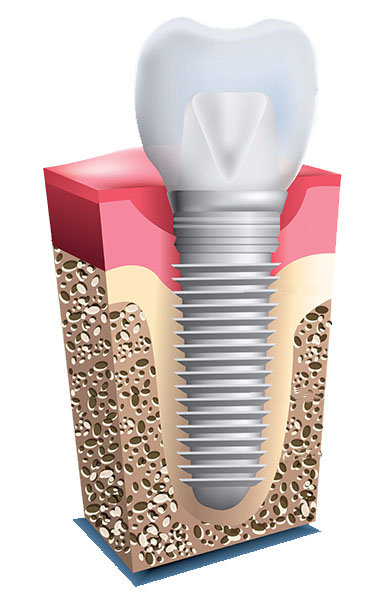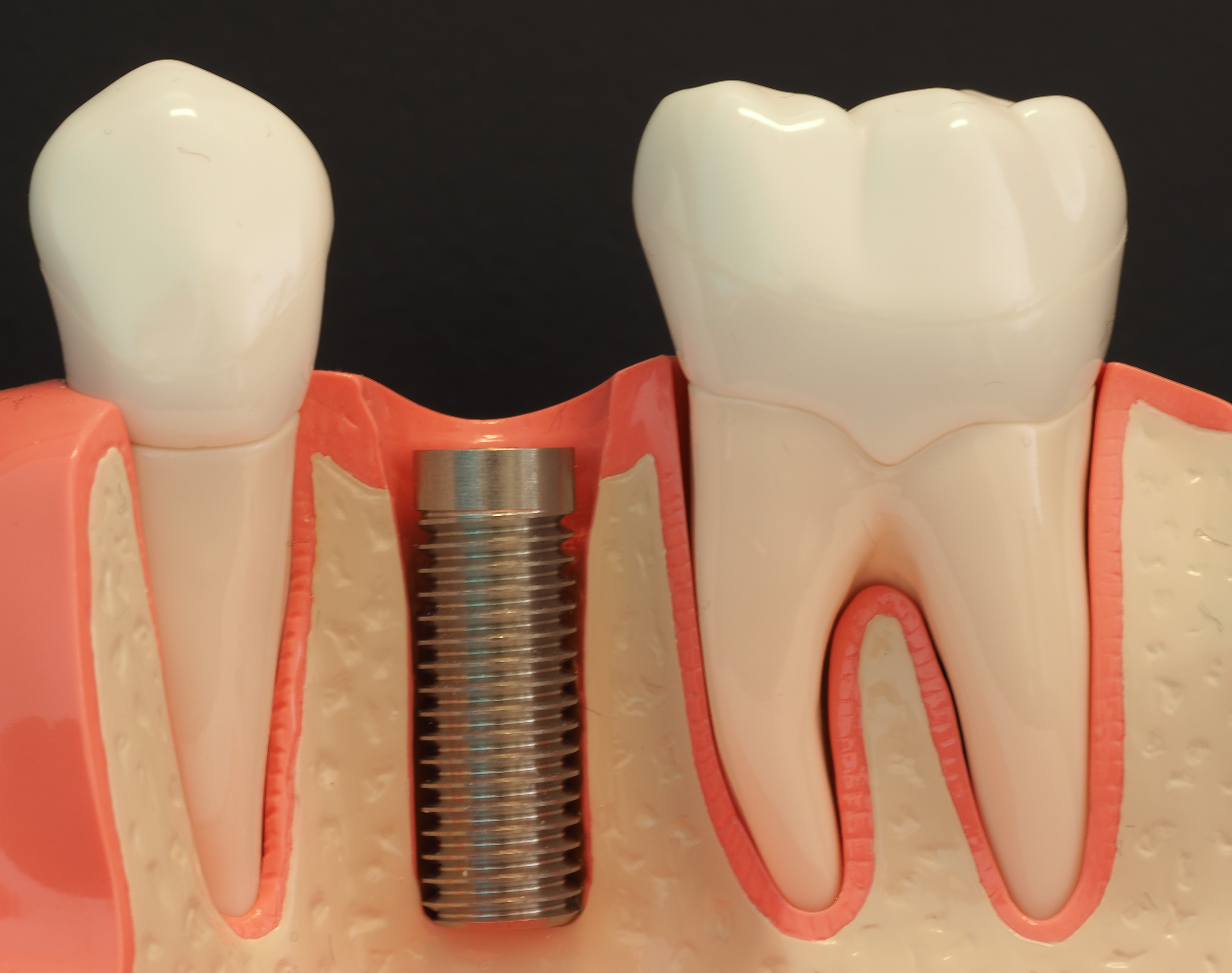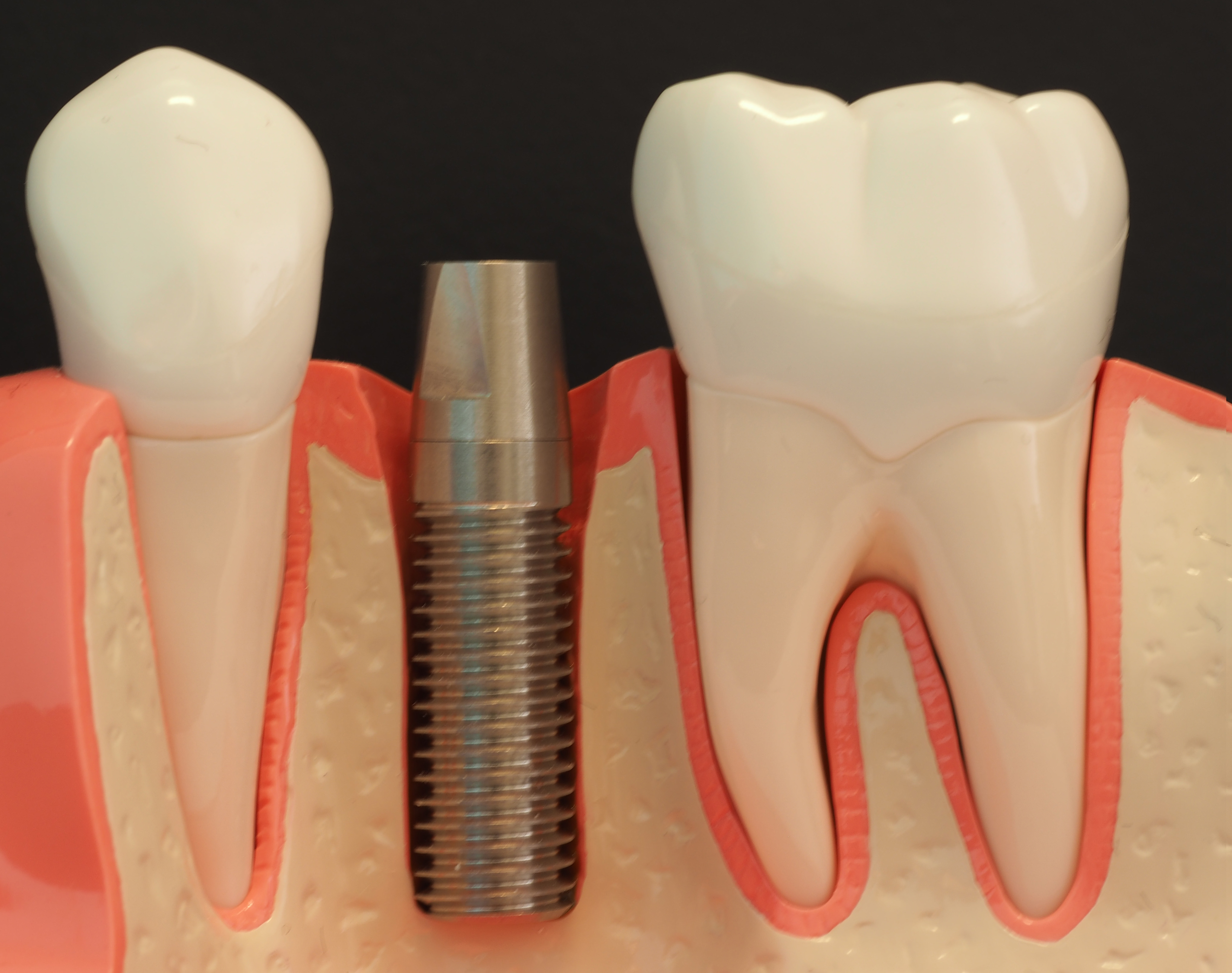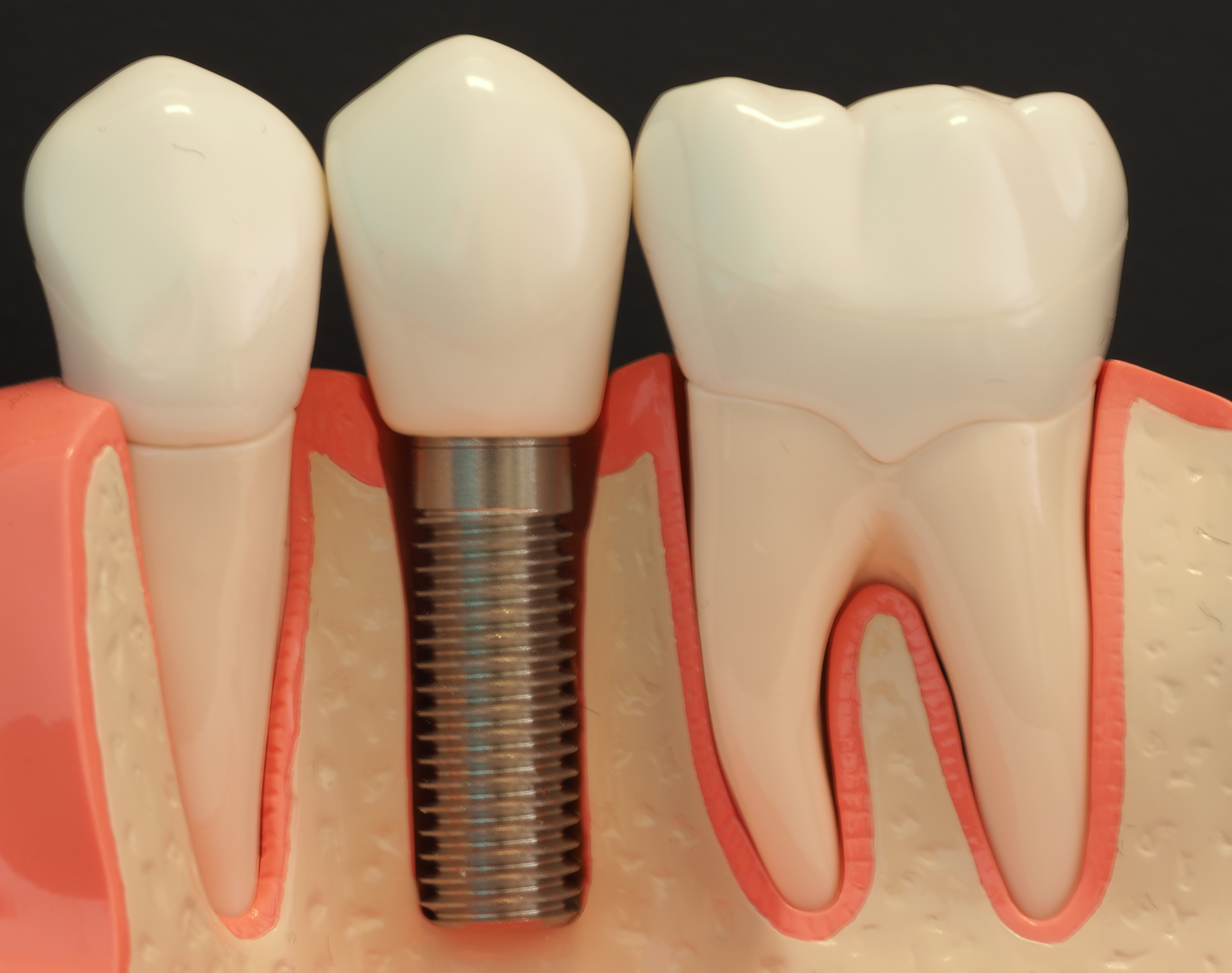
Is Your Smile missing a Tooth?
- Are you missing a back tooth?
- Do you need a tooth extracted but worried about the gap?
- Is it harder to chew with a few missing teeth?
What is a Dental Implant?
A dental implant is an artificial tooth that is fixed directly into the bone using a titanium screw. The bone and gum integrate with the screw, making it act and feel like a natural tooth. Once the bone has integrated with the screw, a crown is then placed on top, making the implant look, feel and act like a natural tooth.
Why Do I need to Replace that Tooth?
The reasons for replacing a front tooth is obvious, no one likes a big gap when smiling. But back teeth? It’s never ‘just a back tooth’! Missing teeth can cause problems when left alone. Teeth are meant to function all together as a group, not just as individual teeth. A missing tooth can cause additional stress on the remaining teeth. There is usually bone loss after losing a tooth, and this can cause the bone around adjacent teeth to shrink as well, causing gum problems. A gap between teeth can cause the teeth on either side to drift into the space, or worse, tilt into the gap and open up even more spaces. It can also cause the tooth on top/bottom to come out more into the space, since there isn’t anything to stop it from growing!
What are the Advantages of getting a Dental Implant?
There are not many options for replacing a missing tooth - a removable denture or a dental bridge are the only other options. But these may compromise the health of the surrounding teeth and gums. Dentures may require hooks to hold it in place, rubbing on the gums, while dental bridges usually require the adjacent teeth to be ground down to make room for the bridge. A dental implant is a standalone unit and can be placed without sacrificing the health of the adjacent teeth and tissues.
Because a dental implant integrates with the bone, they are more comfortable and easier to keep clean than dentures or a bridge. Speech is easier and you can eat your favorite foods without pain or discomfort.
Dental Implant Procedure

Stage 1
The first stage of placing an implant involves putting the implant screw in the bone. This screw will take 4-6 months to integrate with the bone, acting like the root of a tooth.

Stage 2
Sometimes an extra step is needed before placing the crown on the implant - an implant abutment may be placed separately before the crown to help mould the gums into the right shape.

Stage 3
After the bone has integrated with the implant, the final stage involves placing a crown over the implant. The implant can now act like a natural tooth.
Dental Implant FAQ
Am I suitable for an Implant?
Most people are suitable for implants! The most important thing is the quality of the bone - if a tooth has been extracted a long time ago or if you have poor quality bone (due to medical conditions such as osteoporosis or gum disease), we may need to do further tests to make sure your bone can support an implant.
We also need to make sure there is enough room - ideally, the adjacent teeth haven’t moved into the empty space.
Lastly, we need to check that there are no important structures, such as nerves or major blood vessels, in the planned implant site.
Will it be painful?
Getting a dental implant is usually less painful than having a tooth taken out. But after all, this is a major dental procedure so some pain afterward is to be expected.
We recommend using icepacks and having soft food for at least a week after the first stage of implant placement. Salt water rinses and keeping the area clean is also essential to prevent infections that can cause further pain.
What are the costs?
The cost of our implants range from $4500 - $6000, depending on whether you need bone grafting and the type of implant you need. We have payment plans with National Dental Plan to help pay it off for up to 24 months - no interest ever!
What are the risks?
As with any medical procedure, there are risks involved with dental implants. Some common risks involve infection, injury to other teeth, nerve damage and sinus problems. We may need to you take extra x-rays to minimize the chance of having these complications. Please speak to our dentists to discuss these risks and if they apply to you.
How long does an implant last?
A dental implant can last a lifetime, but like your natural teeth, they must be kept clean and free of infection. A dental implant is made from biocompatible titanium and therefore can stay for many years. Lifestyle factors such as smoking, medical conditions such as osteoporosis or diabetes or oral habits such as nighttime teeth grinding may prevent the implant from lasting as long as it should, so please let your dentist know if you have these conditions.